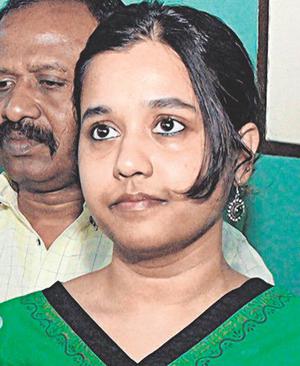
TN rights panel has a reputation for independence. Is that enough?

Tamil Nadu’s human rights body this week ordered the state government to pay a compensation of ₹2 lakh to Canada-based student, Lois Sophia, who was arrested for shouting anti-BJP slogans on a Chennai–Thoothukudi flight three-and-a-half years ago.
The State Human Rights Commission’s (SHRC) order is being seen as proof that the panel works without fear or favour. However, it is yet to be seen when and how the order will be implemented.
On March 2, the SHRC directed the state to pay compensation to Sophia, who was detained by police at Thoothukudi airport in September 2018. She was accused of shouting “fascist BJP down, down” on the flight, in which BJP leader and now Puducherry Governor Dr Tamilisai Soundararajan was a co-passenger.
Also read: ‘The war will end…but I saw who paid the price’; Darwish’s poem goes viral
On reaching Thoothukudi, the student was allegedly threatened by BJP workers and supporters of Soundararajan. Following a brief ruckus, the airport police detained Sophia and took her to a station, where they questioned her for several hours.
While hearing the petition filed by Sophia’s father, the commission cited the Supreme Court judgment in Arnesh Kumar vs State of Bihar and DK Basu vs West Bengal cases, and said the arrest was “not at all essential”.
The commission said: “It is established by the complainant that the respondents (police) interrogated the PW2 (prosecution witness, Sophia) in Pudukkottai police station from 1.30pm to 7.30pm by questioning her one after another and caused mental torture to her and the 1st respondent (R Thirumalai, inspector, Pudukkottai police station) arrested her and remanded to judicial custody without following the procedures laid down by the apex court on this aspect. It affects the liberty and freedom of the PW2 and needs to be exercised with great care and caution. Therefore, this Commission holds that all the respondents had violated the human rights of the PW2, Lois Sophia.”
The SHRC directed the government to pay the compensation within one month and instructed it to recover the money from the police officials concerned.
Legally Binding
Past rulings show that the SHRC acts independently irrespective of the party in power. But its orders are not always implemented in a timely manner.
For example, in 2019, the commission had slapped a fine of ₹2 lakh on three policemen for assaulting and stripping a youth in Virudhunagar district in 2012. In 2018, it ordered the state to pay ₹10 lakh compensation to a woman whose husband died in police custody in Dindigul district in 2008. Also in 2018, the commission ordered the state to pay ₹10 lakh to a man who was detained illegally by the police in 2013. In 2015, it slapped a fine of ₹15,000 against a female police officer for allegedly attacking an employee of the Tamil Nadu Electricity Board in 2003.
Also read: Is NEET driving students abroad to study medicine?
However, that does not mean that the orders pronounced were implemented immediately and effectively. In 2018, The Hindu reported that at least 50 orders passed by the SHRC since October 2017 had not been implemented. When The Federal contacted the SHRC, they said no orders were pending.
“In February 2021, the full bench of the Madras High Court said that the recommendations of the SHRC are legally binding and immediately enforceable. All this while, there were two opinions on interpreting SHRC orders. But now it has cleared. The state should immediately implement the orders. If the petitioners or the respondents are not satisfied with the commission’s orders then they can go for an appeal in the high court,” said Salai Varun, an advocate practising at Madras High Court.
Recovering Compensation from Officials
Interestingly, last year the HC said that the state can recover the money it pays out as compensation from the officials concerned.
In 2000 Rajesh Das, a senior police official, was accused of attacking two police personnel who allegedly teased his wife, Beela, an IAS officer, while she was playing badminton at the Armed Forces Ground in Trichy. Ten years later the SHRC asked him to pay compensation to the victims. That same year, he filed an appeal in the Madras HC.
Writing about the case, former HC judge K Chandru, in his recently released autobiography Naanum Needhipathi Aaanen (I Too Have Become a Judge), criticised the then judge Nagamuthu for saying that the government cannot straightway prosecute the official on the basis of the commission’s recommendations.
Also read: The problem with Anna University’s decision to expand ‘relative grading’
“He was ordered to pay a compensation of ₹5 lakh to the police personnel and the commission directed the state government to recover the cost from the officer. However, he filed a writ petition in the Madras High Court and got a stay. Finally, in February 2021, a three-judge bench upheld the commission’s recommendations and said the single judge’s observations are wrong,” he wrote.
Cuddalore-based human rights activist R Murugappan said the SHRC has always had a reputation for being independent. However, its effectiveness depends on its members.
“The commission has four members. All of them are former judges. Each member handles different cases. It is in the hands of the members to make the commission more effective,” he said.


